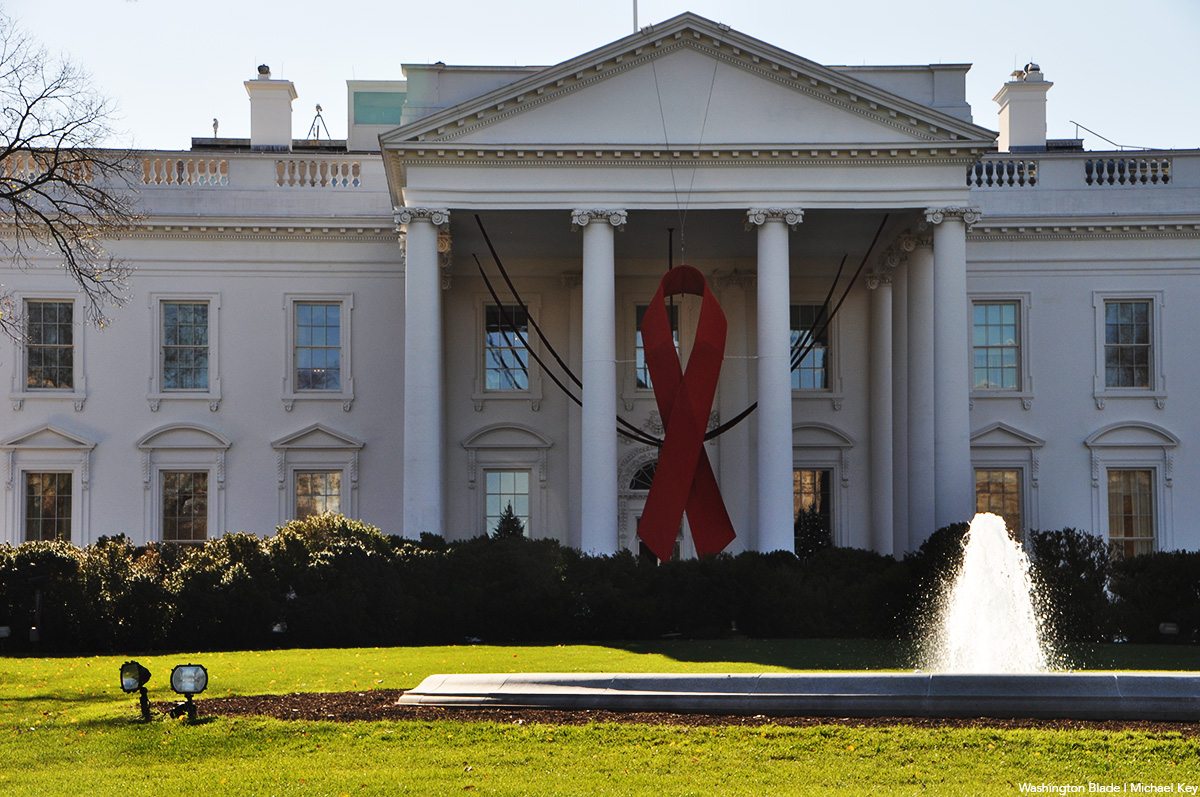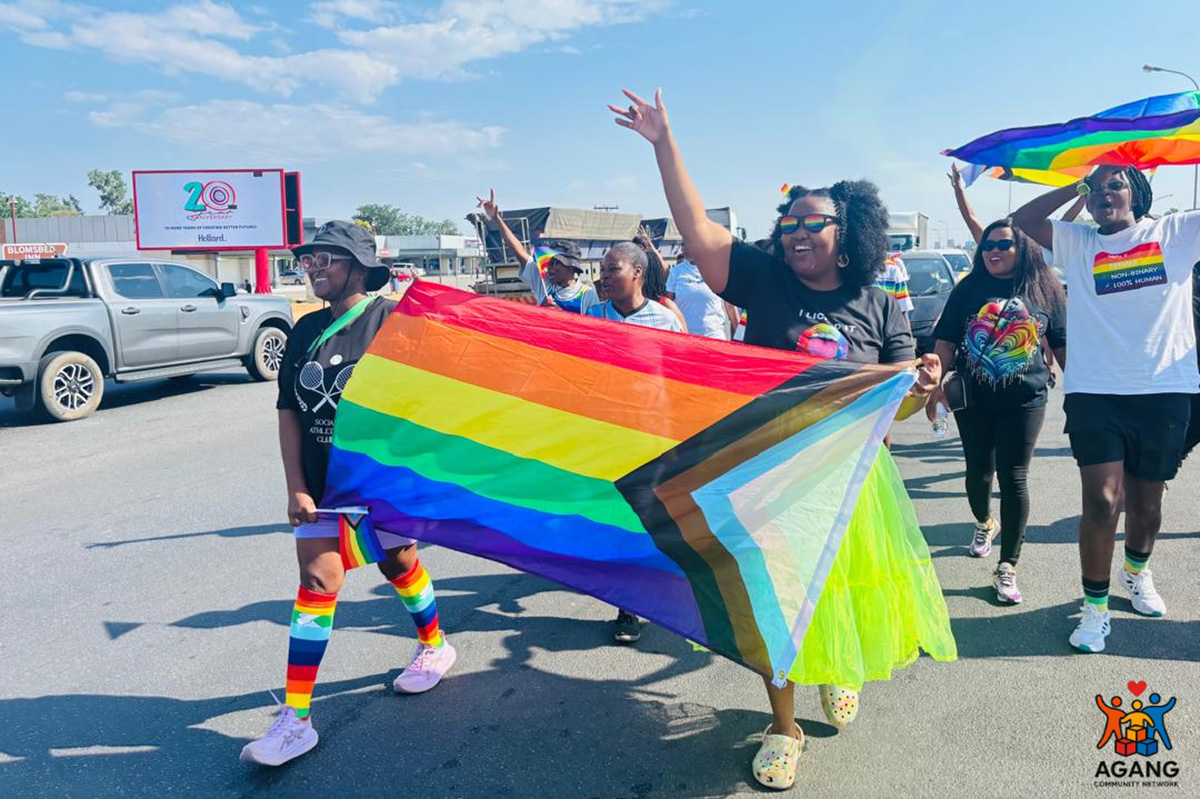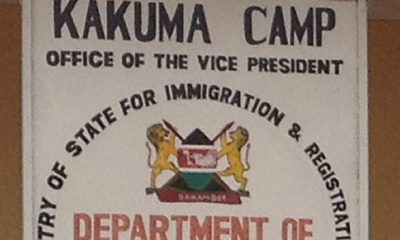Africa
Companies pull out of Uganda, NGOs suspend services after Anti-Homosexuality Act signed
Law punishes ‘aggravated homosexuality’ with death

The effects of Uganda’s Anti-Homosexuality Act signed by President Yoweri Museveni late last month are already being felt in the country, even though it has been challenged in court.
Some companies have stopped services that violate the new law, while others have suspended theirs pending the court’s decision. Others have staged boycotts in solidarity with Uganda’s LGBTQ community.
DStv is one of the international media companies that has stopped the airing of gay content in the country to comply with the law banning the promotion of homosexuality.
The sub-Saharan African video entertainment company owned by MuiltChoice Group stated that it abides by every country’s laws in its film and television business of enriching the lives of people in relation to Uganda’s anti-homosexuality law.
“MultiChoice takes into account all laws and regulations under which we are governed and aims to adhere to those set rules in the countries in which we operate,” the South Africa-based company confirmed to local press the day after Museveni signed the law on May 29.
The Anti-Homosexuality Act contains punitive provisions, such as the death penalty for “aggravated homosexuality,” and a 20-year sentence for “promoting” homosexuality, which MultiChoice wants to avoid in its programming.
The Human Rights Awareness and Promotion Forum, a health-oriented NGO that advocates for equal access to services by all people including LGBTQ persons, has suspended its work over the anti-homosexuality law.
The organization through a May 30 statement said it suspended its malaria, tuberculosis, and HIV services until the court clarifies the law to avert any prosecution for offering services to LGBTQ people.
“The board has decided that as HRAPF seeks an interpretation of these provisions from the constitutional court, it will stop work that the government has formally or informally indicated may be illegal under the new law and other work that we suspect may be interpreted as promotion of homosexuality under Section 11,” the statement reads.
Uganda’s NGO Bureau in January listed HRAPF among the civil society organizations under investigation on allegations of promoting homosexuality, which was not recognized as an offense before the new law came into effect.
“No details were given as to why HRAPF was being investigated, and this leaves us in the dark as to why we were being investigated,” reads the statement by HRAPF Executive Director Adrian Jjuuko.
The organization is among other petitioners that are challenging the legality of numerous contentious clauses in the anti-gay law including reporting gay suspects to the authorities under Section 14.
Persons who report the suspects are guaranteed state benefits like protection from punishment as whistle-blowers.
The harsh law on LGBTQ people has also impacted the once busy U.S.-funded HIV/AIDS treatment center in Kampala, the Ugandan capital, because patients fear the police will identify and arrest them.
The new law criminalizes consensual same-sex sexual relations with life imprisonment while transmitting HIV, which falls under the law’s “aggravated homosexuality” provision, carries the death penalty.
The deserted clinic always received a minimum of 50 patients daily for HIV/AIDS preventive services like condoms and antiretroviral therapy. Service providers are therefore concerned over a potential spike in HIV/AIDS cases.
The clinic has been instrumental in the fight against HIV in the country where 1.4 million people live with the virus and 17,000 annual deaths from the disease, according to the latest figures by Uganda’s AIDS Commission.
Prominent author turns down invitation to speak at Ugandan university
Mukoma wa Ngugi, a U.S.-based Kenyan author and professor of English literature at Cornell University, has boycotted an invite he received from Makerere University, Uganda’s premier university, to give a public lecture in August.
Wa Ngugi, a son of the globally-celebrated Kenyan writer Ngugi wa Thiong’o, said he decided to boycott lecture in solidarity with LGBTQ people in Uganda on grounds that the Anti-Homosexuality Act curtails freedom of expression.
“The anti-gay bill passed in Uganda is gratuitous in its cruelty,” said Mukoma. “It criminalizes the human body, speech, thought, intent, literature, music and language. In short, it criminalizes culture itself while claiming to be protecting African culture.”
He reiterated that the new law censures him from sharing his works; such as his poem supporting LGBTQ Africans, thus conflicting with his artistic honesty and integrity. Wa Ngugi noted that forbidding people’s gender identity should not be tolerated since it is like “outlawing humanity.”
“How does just being who are you become illegal? Should we not be protecting and celebrating our sexual diversity?” Mukoma posed.
He accused Museveni of leading the country to the wrong path of “anti-decolonization” through the anti-gay law. Wa Ngugi also likened Uganda’s decision to criminalize homosexuality to what is happening in Florida “where being gay, or Black, or an immigrant or woke is an anathema.”
Egypt
Iran, Egypt object to playing in Seattle World Cup ‘Pride Match’
Game to take place on June 26

Iran and Egypt have objected to playing in a “Pride Match” that will take place in Seattle during the 2026 World Cup.
The Egyptian Football Association on Tuesday said it told FIFA Secretary General Mattias Grafström in a letter that “it categorically rejects holding any activities related to supporting (homosexuality) during the match between the Egyptian national team and Iran, scheduled to be held in Seattle, USA, on June 26, 2026, in the third round of the group stage of the 2026 World Cup.” Football Federation Islamic Republic of Iran President Mehdi Taj told ISNA, a semi-official Iranian news agency that both his country and Egypt “protested this issue.”
The 2026 World Cup will take place in the U.S., Canada, and Mexico. The draw took place at the Kennedy Center on Dec. 5.
Iran is among the handful of countries in which consensual same-sex sexual relations remain punishable by death.
The State Department’s 2023 human rights report notes that while Egyptian law “did not explicitly criminalize consensual same-sex sexual activity, authorities regularly arrested and prosecuted LGBTQI+ persons on charges including ‘debauchery,’ prostitution, and ‘violating family values.’” Egyptian authorities “also reportedly prosecuted LGBTQI+ individuals for ‘misuse of social media.’”
“This resulted in de facto criminalization of same-sex conduct and identity,” notes the report.
The 2024 human rights report the State Department released earlier this year did not include LGBTQ-specific references.
Soccer has ‘unique power to unite people across borders, cultures, and beliefs’
The June 26 match between Iran and Egypt coincides with Seattle Pride. The Washington Post reported the Seattle FIFA World Cup 2026 Local Organizing Committee decided to hold the “Pride Match” before last week’s draw.
“As the Local Organizing Committee, SeattleFWC26’s role is to prepare our city to host the matches and manage the city experience outside of Seattle Stadium,” said SeattleFWC26 Vice President of Communications Hana Tadesse in a statement the committee sent to the Washington Blade on Wednesday. “SeattleFWC26 is moving forward as planned with our community programming outside the stadium during Pride weekend and throughout the tournament, partnering with LGBTQ+ leaders, artists, and business owners to elevate existing Pride celebrations across Washington.”
“Football has a unique power to unite people across borders, cultures, and beliefs,” added Tadeese. “The Pacific Northwest is home to one of the nation’s largest Iranian-American communities, a thriving Egyptian diaspora, and rich communities representing all nations we’re hosting in Seattle. We’re committed to ensuring all residents and visitors experience the warmth, respect, and dignity that defines our region.”
The 2034 World Cup will take place in Saudi Arabia.
Consensual same-sex sexual relations remain punishable by death in the country. The 2022 World Cup took place in neighboring Qatar, despite concerns over the country’s anti-LGBTQ rights record.
Eswatini
PEPFAR delivers first doses of groundbreaking HIV prevention drug to two African countries
Lenacapavir now available in Eswatini and Zambia.

The State Department on Tuesday announced PEPFAR has delivered the first doses of a groundbreaking HIV prevention drug to two African countries.
The lenacapavir doses arrived in Eswatini and Zambia.
The State Department in September unveiled an initiative with Gilead Sciences to bring lenacapavir “to market in high-burden HIV countries.”
Lenacapavir users inject the drug twice a year.
The State Department in its September announcement noted everyone who participated in Gilead’s clinical trials remained HIV negative. It also said lenacapavir “has the potential to be particularly helpful for pregnant and breastfeeding mothers, as it safely protects them during and after pregnancy to prevent mother-to-child transmission.”
“In our new America First Global Health Strategy, the Department of State is establishing a first-of-its-kind innovation fund to support American-led research, market-shaping, and other dynamic advancements in global health,” said PEPFAR on Tuesday in a press release.
“The arrivals of the first doses of lenacapavir in Eswatini and Zambia mark an important milestone in HIV prevention and reflect our commitment to supporting communities with the greatest need,” added Gilead CEO Daniel O’Day. “For the first time, a new HIV medicine is reaching communities in sub-Saharan Africa in the same year as its U.S. approval.”
The September announcement came against the backdrop of widespread criticism over the Trump-Vance administration’s reported plans to not fully fund PEPFAR and to cut domestic HIV/AIDS funding. The Washington Blade has previously reported PEPFAR-funded programs in Kenya and other African countries have been forced to curtail services or even close because of U.S. funding cuts.
Botswana
The first courageous annual Palapye Pride in Botswana
Celebration was a beginning rooted in courage, community, and love.

“When the sun rose on 1 Nov., 2025, Pride morning in Palapye, the open space where the march was scheduled to begin was empty. I stood there trying to look calm, but inside, my chest felt tight. I was worried that no one would come. It was the first-ever Pride in Palapye, a semi-urban village where cultural norms, religious beliefs, and tradition are deeply woven into everyday life.
I kept asking myself if we were being naive. Maybe people weren’t ready. Perhaps fear was going to win. For the first 30 minutes, it was me, a couple of religious leaders and a handful of parents. That was it. The silence was loud, and every second felt like it stretched into hours. I expected to see the queer community showing up in numbers, draped in color and excitement. Instead, only the wind was moving.
But slowly, gently, just like courage often arrives, people started to show up with a rainbow flag appearing from behind a tree and a hesitant wave from someone standing at a distance.
That’s when I understood that people weren’t late, just that they were afraid. And their fear made sense. Showing up openly in a small community like Palapye is a radical act. It disrupts silence. It challenges norms. It forces visibility. Visibility is powerful, but it is never easy. We marched with courage, pulling from the deepest parts of ourselves. We marched with laughter that cracked through the tension. We marched not because it was easy, but because it was necessary,” narrates activist Seipone Boitshwarelo from AGANG Community Network, which focuses on families and friends of LGBTIQ+ people in Botswana. She is also a BW PRIDE Awards nominee for the Healing and Justice Award, a category which acknowledges contributions to wellness, mental health, and healing for the LGBTIQ+ community across Botswana.
Queer Pride is Botswana Pride!
Pride is both a celebration and a political statement. It came about as a response to systemic oppression, particularly the criminalization and marginalization of LGBTIQ+ people globally, including in Botswana at some point. It is part of the recognition, equality, and assertion of human rights. It also reminds us that liberation and equality are not automatically universal, and continued activism is necessary. A reminder of the famous saying by Fannie Lou Hamer, “Nobody is free until everybody’s free.”
The 2023 Constitutional Review process made one thing evident, which is that Botswana still struggles to acknowledge the existence of LGBTIQ+ people as full citizens. Instead of creating a democratic space for every voice, the process sidelined and erased an entire community. In Bradley Fortuin’s analysis of the Constitutional review and its final report, he highlighted how this erasure directly contradicts past court decisions that explicitly affirmed the right of LGBTIQ+ people to participate fully and openly in civic life. When the state chooses to ignore court orders and ignore communities, it becomes clear that visibility must be reclaimed through alternative means. This is why AGANG Community Network embarked on Palapye Pride. It is a radical insistence on belonging, rooted in community and strengthened through intersectionality with families, friends, and allies who refuse to let our stories be erased.
Motho ke motho ka batho!
One of the most strategic decisions made by the AGANG Community Network was to engage parents, religious leaders, and local community members, recognizing their value in inclusion and support. Thus, their presence in the march was not symbolic, but it was intentional.
Funding for human rights and LGBTIQ+ advocacy has been negatively impacted since January 2025, and current funding is highly competitive, uneven and scarce, especially for grassroots organizations in Botswana. The Palapye Pride event was not funded, but community members still showed up and donated water, a sound system, and someone even printed materials. This event happened because individuals believed in its value and essence. It was a reminder that activism is not always measured in budgets but in willingness and that “motho ke motho ka batho!” (“A person is a person because of other people!”).
Freedom of association for all
In March 2016, in the the Attorney General of Botswana v. Rammoge and 19 Others case, also known as the LEGABIBO registration case, the Botswana Court of Appeal stated that “members of the gay, lesbian, and transgender community, although no doubt a small minority, and unacceptable to some on religious or other grounds, form part of the rich diversity of any nation and are fully entitled in Botswana, as in any other progressive state, to the constitutional protection of their dignity.” Freedom of association, assembly, and expression is a foundation for civic and democratic participation, as it allows all citizens to organize around shared interests, raise their collective voice, and influence societal and cultural change, as well as legislative reform.
The Botswana courts, shortly after in 2021, declared that criminalizing same-sex sexual relations is unconstitutional because they violated rights to privacy, liberty, dignity, equality, and nondiscrimination. Despite these legal wins, social stigma, cultural, and religious opposition continue to affect the daily lived experience of LGBTIQ+ people in Botswana.
The continuation of a declaration
AGANG Community Network is committed to continuing this work and creating safe and supportive spaces for LGBTIQ+ people, their families, friend, and allies. Pride is not just a day of fun. It is a movement, a declaration of queer existence and recognition of allyship. It is healing and reconciliation while amplifying queer joy.
Seipone Boitshwarelo is a feminist, activist, social justice healer, and founder of AGANG Community Network. Bradley Fortuin is a social justice activist and a consultant at the Southern Africa Litigation Center.




















